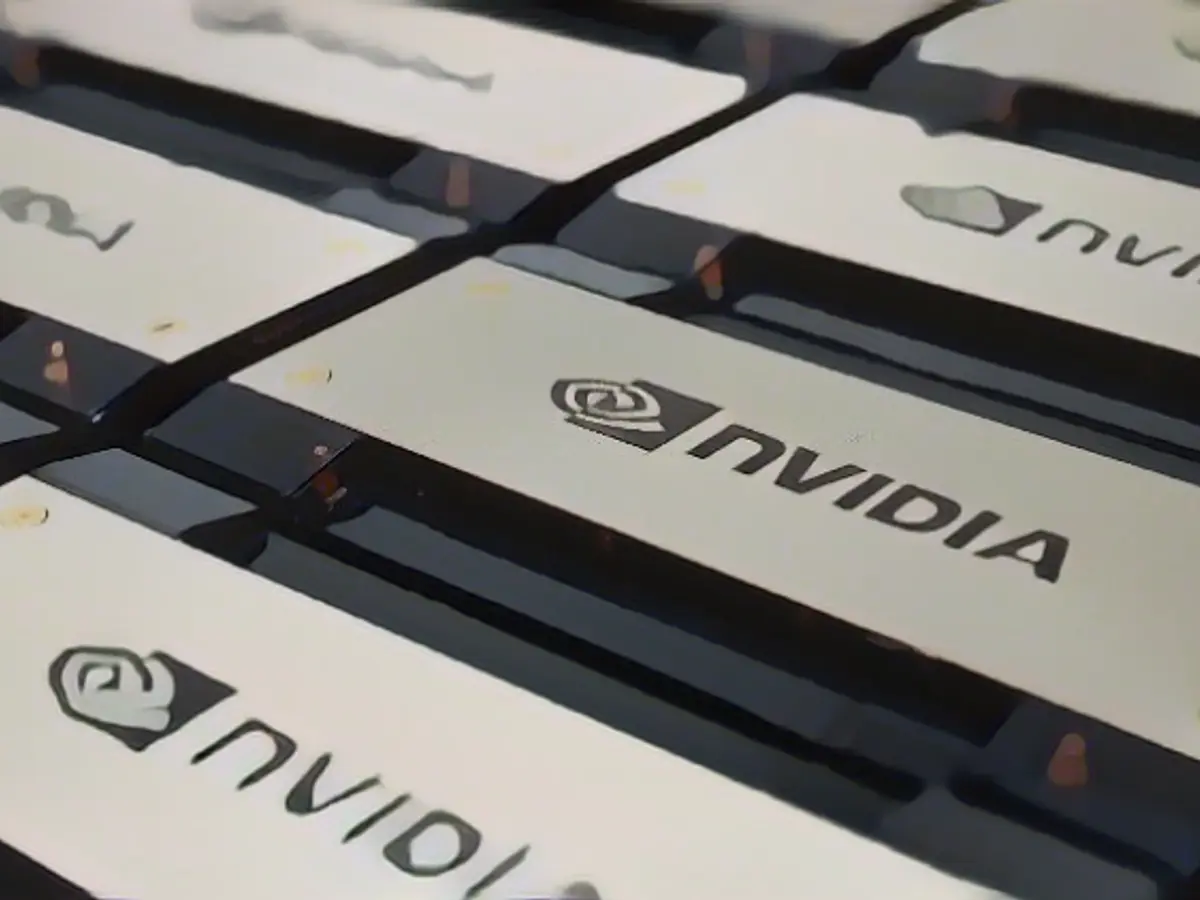Powerhouse AI Chip Producer Nvidia Soars
The tech world is abuzz with artificial intelligence (AI) and its transformative potential. And who's leading the charge? None other than Nvidia, the San Jose-based tech titan that's revolutionizing AI technology. With a surge in demand and relentless innovation, Nvidia has tripled its revenue and set its sights on further growth, even amidst the challenges posed by international trade tensions.
In its latest financial quarter, Nvidia reported record-breaking earnings. The company's revenue soared to a whopping $18.1 billion, a staggering 300% increase over the previous year, far outperforming analyst expectations of around $16 billion. Profits came in even more impressive at $9.2 billion, representing a 1,300% increase from the previous year.
Nvidia has been a trailblazer in the AI space since 1993 when founders Jen-Hsun "Jensen" Huang and Chris Malachowsky first launched the company. Initially focused on graphics cards for computer gamers, Nvidia's high-performance microchips have now become instrumental in the development of AI.
While Nvidia doesn't manufacture its chips in-house, it partners with leading semiconductor manufacturers like Taiwan Semiconductor Manufacturing Company (TSMC) to meet the growing demand. To secure a steady supply, Nvidia has placed binding and non-cancelable orders with these partners.
Nvidia's shares have experienced unprecedented growth this year, surging by 240%. The company currently boasts a market capitalization of over $1 trillion, placing it in elite company alongside tech giants like Apple, Microsoft, Amazon, Alphabet, and Saudi Aramco.
Despite the exceptional growth, Nvidia faces several challenges in the Chinese market. The US government is imposing or considering tighter restrictions on AI chip sales to China, potentially impacting sales of Nvidia's high-performance H20 AI processor. Moreover, the emergence of Chinese AI chip manufacturers like DeepSeek poses a threat to Nvidia's market share, with their cost-efficient AI assistant, DeepSeek R1, gaining support from leading Chinese AI chip manufacturers.
Nvidia is also grappling with production delays for its next-generation AI chips, which are facing design flaws, resulting in a three-month delay. Further, any disruption in Taiwan due to geopolitical tensions could impact TSMC, affecting Nvidia's supply chain stability.
Despite these challenges, Nvidia remains optimistic, expressing a willingness to collaborate with the US government on AI exports policies. The company is also diversifying its business into automotive, robotics, and physical AI through initiatives like Nvidia Cosmos program and strengthening R&D investments to maintain technological leadership.
As AI continues to reshape the world, there's no doubt that Nvidia will continue to innovate and lead the way. But with geopolitical rivalries and fierce competition looming, the road ahead will not be easy.
Sources:
Enrichment Insights:
- The US administration, under both President Donald Trump and former President Joe Biden, has imposed or is considering tighter restrictions on Nvidia's AI chip sales to China, potentially impacting sales of Nvidia's H20 AI processor, a slower version of the H100 processor designed for the Chinese market.
- The emergence of Chinese AI chip manufacturers like DeepSeek poses a threat to Nvidia's market share, with their cost-efficient AI assistant, DeepSeek R1, gaining support from leading Chinese AI chip manufacturers.
- Nvidia is facing production delays for its next-generation AI chips, with design flaws causing a three-month delay impacting major customers such as Meta, Google, and Microsoft.
- Any disruption in Taiwan due to geopolitical tensions could impact Nvidia’s supply chain stability, as the company heavily relies on Taiwan Semiconductor Manufacturing Company (TSMC) for manufacturing.
- The production delay provides an opportunity for competitors like AMD and Intel, which are gaining traction in the AI market with competitive offerings like AMD's MI300 Series and Intel’s Gaudi 3 Accelerator. This could potentially shift billions in market share away from Nvidia.








